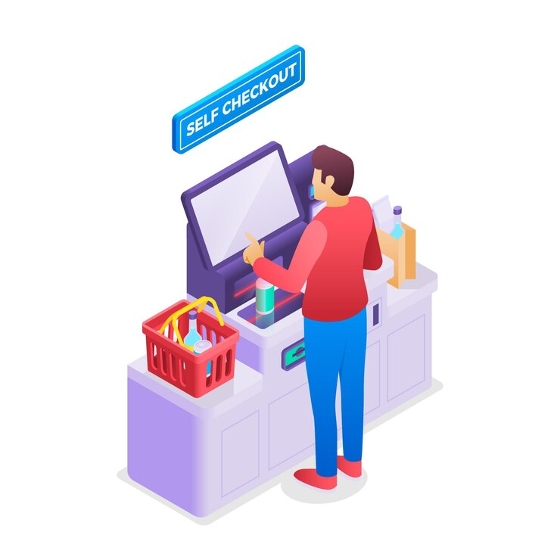 Self-checkout has enjoyed years of steady adoption. One study that examined 4.5 billion transactions found that self-checkout accounted for 38 percent of checkout lanes in 2021. But now, many retailers have begun to pause and even roll back self-checkout lanes. Self-checkout was widely viewed as a way to trim labor costs and speed up shopping, but the real-world costs might outweigh the savings.
Self-checkout has enjoyed years of steady adoption. One study that examined 4.5 billion transactions found that self-checkout accounted for 38 percent of checkout lanes in 2021. But now, many retailers have begun to pause and even roll back self-checkout lanes. Self-checkout was widely viewed as a way to trim labor costs and speed up shopping, but the real-world costs might outweigh the savings.
In the U.K., Nigel Murray, managing director of high-end supermarket chain Booths, noted that customers complained about how slow the self-checkout process was and that the machines were impersonal and unreliable. The British supermarket chain is removing self-checkout from all but two of its more than 50 stores. Target is piloting a program to limit self-checkout to 10 items or less, essentially turning them into express lanes. Walmart and various other chains have announced plans to hire more cashiers.
So why is self-checkout failing to meet expectations? Among other things, checkout clerks are much more skilled than previously acknowledged. Customers buying produce, for example, often ring up the wrong item on the self-checkout machines. To customers, a banana might be just a banana, but one banana might cost 25 cents and another a dollar. Theft is another problem. Some customers might ring up a pricier organic avocado as a regular avocado. Other customers innocently forget to ring up some items in their carts.
On top of that, there are logistical hang-ups. For example, buying alcohol can all but shut down self-checkout lanes as clerks rush around to verify IDs. Turns out, sometimes progress isn't progress. Shoppers can expect to see more human clerks in the not-so-distant future.
The picture was from: Freepik.
Comments:
Post Your Comment: